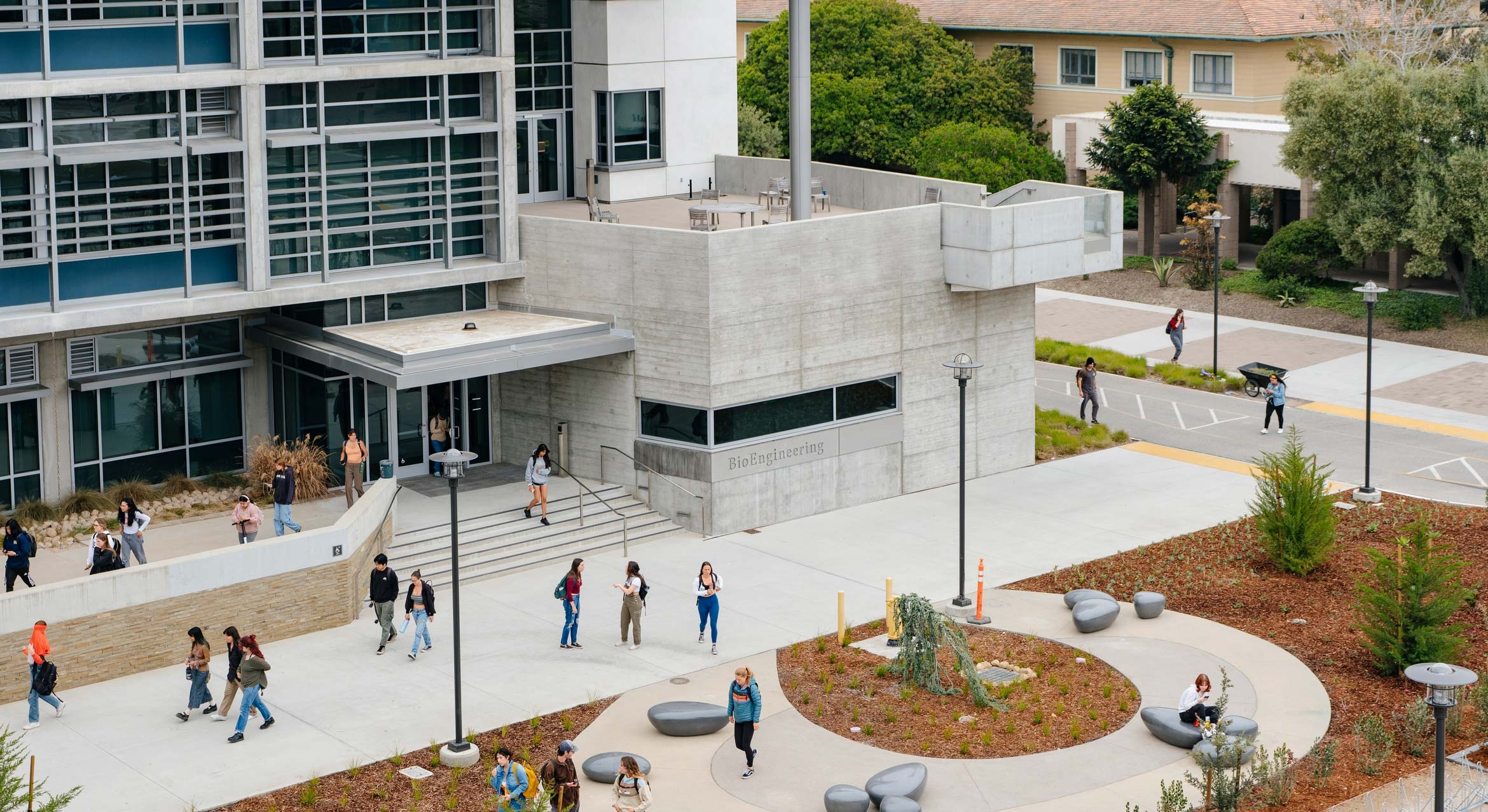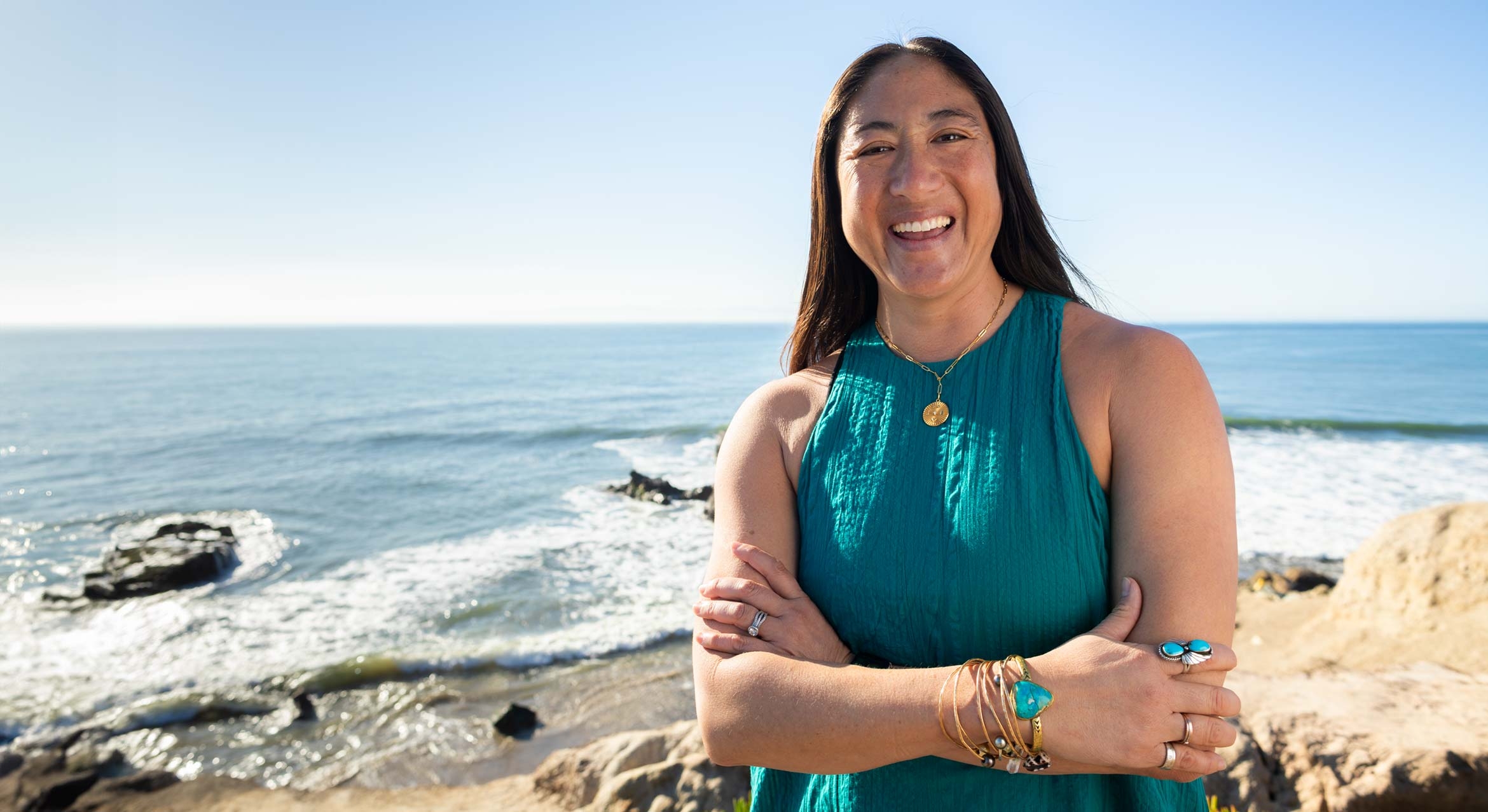Conflict Coaching
Winter, spring, summer or fall. For faculty, staff and students, even parents of students. Confidential, informal, impartial, independent.
Meet one of the most robust campuses resources you may not know about: UC Santa Barbara’s Office of the Ombuds. Tucked inside a nondescript office on a sometimes-overlooked wing of Girvetz Hall, the ombuds team is working day in, day out, to nurture the campus community by fostering clearer communication.
That’s how Caroline Adams sees it.
“Having an ombuds is so important in a university setting — in any organization — to really help maintain community,” said Adams, campus ombuds and director of the UCSB’s Office of the Ombuds. “As we look at the generations and the technology that people are using — we’re almost losing that ability to communicate as people, and to hear. When you email or text, you’re not listening to the other person. You can’t see their body language or hear the tone in their voice. So many misunderstandings are created by technology, on top of just regular communication issues.
“I think it really helps to have a way to address these things that doesn’t just jump to formal processes, though obviously there are situations where that’s the right way to go,” she continued. “But about 90 percent of what we do here is just trying to help people communicate. And if we can be a channel to do that, that’s why we’re here.”
The campus community can learn more about those whys — as well as the whats, hows and whos — through a pair of events today, Ombuds Day. The inaugural national recognition is an effort of the American Bar Association to promote ombuds and build awareness of their work and the essential role they play.
The UCSB Office of the Ombuds will host an open house for faculty and staff from 10 a.m. to 1 p.m. in 1205K Girvetz Hall. Concurrently, from 12–1 p.m., students are invited to a workshop about roommate communication, facilitated by Assistant Ombuds Megan DeBrito, at the ONDAS Center in Kerr Hall.
“We want to get the word out about what an ombuds is and what we do, said Adams, co-chair of the Ombuds Committee within ABA’s Dispute Resolution Section, which proposed Ombuds Day. “The idea is that we’re going to create a better community, here on campus, nationwide and worldwide, with more mutual respect and more communication. I believe strongly in the concept.”
By official descriptors, the Office of the Ombuds provides confidential consultation services to faculty, staff, students, parents or anyone else with a campus-related concern. The ombuds therein — there are four at UC Santa Barbara — address everything from workplace issues and interpersonal conflicts to academic concerns and policy questions and more. In all things, the ombuds is dedicated to ensuring fairness throughout the university.
“We get calls from parents, from disgruntled visitors to campus — anything that is a UCSB-related issue we will handle,” Adams said. “Through the services that we offer, we’ll do anything for anyone pretty much. We will always listen to people, try to understand and give them all the information we have and try to help them make the best decision for them.”
UC Santa Barbara first opened an ombuds office in 1970 — as did many universities around the country — in response to the tumultuous late 1960s. The intent: to help ameliorate widespread student unrest, playing out in protests over the Vietnam War and the Civil Rights Movement.
Over time, the role of an ombuds has evolved into that of, as Adams calls it, “a conflict coach” and an educator in basic communication skills. They are not mandated reporters and nothing they hear is on the record, or any record. They are not advocates. They are mediators and sounding boards, lending neutral ears and objective perspectives.
“We are an essential channel as an alternative to the university’s formal reporting mechanisms,” Adams said. “We as a profession are trying to encourage more institutions to open ombuds offices, and in fact more are, all across the country, because they’re realizing that the formal channels don’t work for everyone — maybe people are afraid to come forward, or the remedies aren’t appropriate for their situation. We’re a place where people can come and talk about what’s going on, talk about whether they want to report and understand what those processes look like.
“We are not part of ‘management’ and it is not our responsibility to ‘fix’ things,” she added. “We don’t take sides. An ombuds is really defined by our standards of practice: We are impartial, informal, confidential and independent.
Added DeBrito, the assistant ombuds who works primarily with undergraduate students, “We are such a special and unique place for people to come to vent, to talk to someone about an issue, to gain some clarity. Sometimes they leave and we’re not sure what the conclusion may be, but hearing them say when they go, ‘I now see this in a different way, I know what my path is now and where to take this’ — it sounds cliché but literally just being able to help people is so satisfying.”



